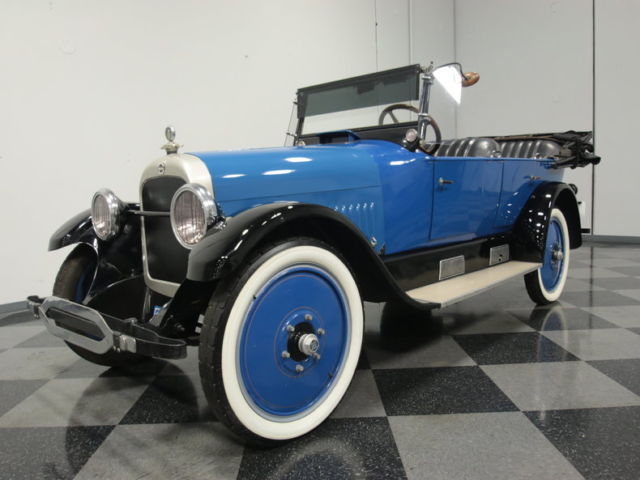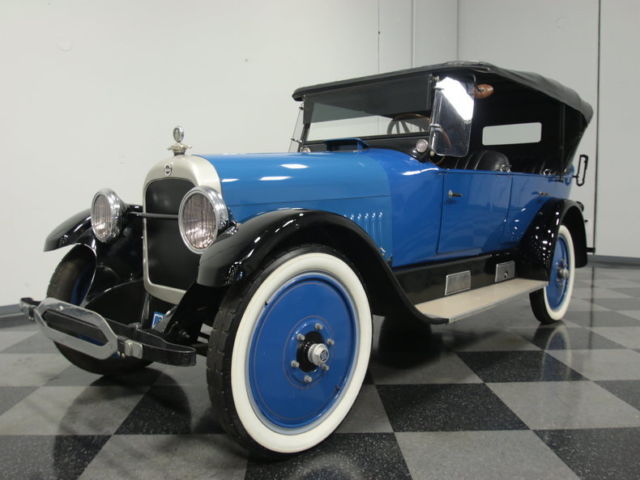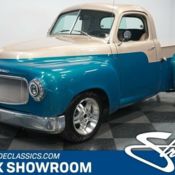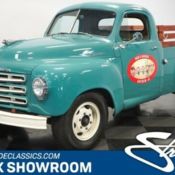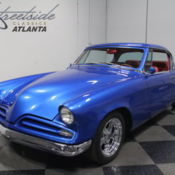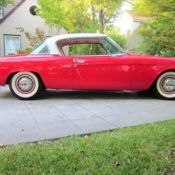|
For many of us, the name "Studebaker" may not be that common, but in the early days of motoring, cars like this 1923 Studebaker Big Six touring were very well-known, highly respected, and admired. Today, cars of the so-called "nickel era" between 1916 and 1928 are a wonderful way to get very road-worthy and attractive old cars at surprisingly reasonable prices.The Studebaker Big 6 was state-of-the-art in 1923, a car that included every modern piece of tech imaginable back then. They were also big, impressive cars with a lot of performance, all of which is exemplified in this sleek touring car. It's got a lot of styling cues that would extend throughout the 1920s, and offers a unique look with the big fluted headlights and gracefully arching front fenders. The cobalt blue paint is one of the few colors you could get on a touring car that year, and it looks suitably sporty without being too flashy, which was the perfect definition of Studebaker's market. The hood was repainted to the former owner's taste, but brightens up this antique just a little bit more. Details like the door handles, ornate step plates, and neat little cowl lights all make this big touring car look imposing and sophisticated. And yes, it's got suicide-style doors, which is always cool.The interior is basic, which all cars were in 1923. There's a set of handsomely pleated black leather seats with room for five, and space in back is truly massive. Up front, you get a big wood steering wheel that makes handling the big Stude relatively easy and the controls will be familiar, even today. The brake, accelerator, and clutch are in their usual spots and the shifter, while requiring a quick double-clutch between gears, doesn't feel all that different than today's units. Secondary controls for the spark and throttle are on the steering hub, along with the horn, while ignition and headlights are on the dash. Other instrumentation includes an ammeter, oil pressure gauges and speedometer, with a Moto-Meter out there on top of the radiator where it belongs. Front seat occupants get battleship linoleum under their feet while there's plush carpet in back, complete with a foot rest. The black convertible top folds best if there are two of you and there's an accessory trunk out back for a little extra carrying capacity.They called these the Big Six for good reason: there are 354 cubic inches living under that long hood. Designed for smooth torque that minimizes shifting, it pulls the big touring car around with genuine authority. Regarded as one of the fastest cars of the era, it's got 75 horsepower and cruises pretty happily at 45-50 MPH. The engine fills up that engine bay, using a typical flathead design with a distributor up front and a vacuum tank on the firewall that feeds the updraft carburetor (assisted by a modern electric fuel pump out back). It's quite correct, still running the heat riser from the exhaust manifold and vintage-style cloth-wrapped hoses and a leather fan belt, and once you master the staring procedure, it springs to life easily. The 3-speed manual transmission has well-spaced ratios and it works best if you remember that this car likes low RPM, so you don't have to wring it out to get best results. The suspension is rigid axles and leaf springs, and with drum brakes on the rear wheels only, you should probably plan your stops carefully. Disc wheels were a dashing option, with these carrying handsome wide whites that really dress the car up. Unusual but worthy of consideration for any collector, this big Studebaker has a wonderful period feel that still works well today. These don't come up for sale very often, don't miss your chance to own a piece of American motoring history. Call now!
|
 Home
Home Contact us
Contact us NEWEST CARS
NEWEST CARS SELL YOUR CAR
SELL YOUR CAR FAQ
FAQ